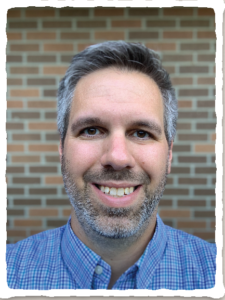The Rev. Dr. Martin Luther King Jr. would have turned 95 next Monday were he still alive. King was a revolutionary leader who cast a powerful vision for what America could be: a land of equality, unity, and justice. He dedicated his life to transforming America to align with God’s vision for the world more closely. His vision has inspired generations. Yet King did not work alone nor is the work complete. There is still inequality, division, and injustice in our nation, particularly when it comes to race.
It can be painful, disturbing, and traumatic to examine our oppression or privilege in the past and present. Yet there can be no healing or reconciliation without examining and addressing systems and experiences of oppression and privilege. The concept of race and the ensuing practice of racism have their roots in the church. In the 1400s European nations were starting to explore other parts of the world. Their exploration was not primarily about curiosity and discovery, but the quest for wealth and power. In 1452, Pope Nicholas V issued a papal bull authorizing European powers to conquer the lands of non-Christians called the Doctrine of Discovery. Nicholas V used explicitly racist language in his papal bull, declaring all non-Europeans as savages with no rights and unfit to control the territories in which they lived. Nicholas V’s Doctrine of Discovery was used for centuries as the justification for European nations to conquer territories around the world. It was so ingrained in Christian and Western thought that it was accepted as international law that the discovery of any lands previously unknown to Europeans gave those lands to the European nation which “discovered” them.
While the Doctrine of Discovery was issued long ago, its impact continues to be felt today. Through the actions of the church racism and white supremacy were born. The church watched on and supported the slave traders who took Africans on a journey through hell across the Atlantic to the Americas to be sold into slavery. The church watched on and supported the killing of indigenous peoples and the driving of them from their homelands. The church watched on and supported chattel slavery, Jim Crow, and segregation. Throughout these times, the church continued to read the words of Paul, “There is no longer Jew or Greek, there is no longer slave or free, there is no longer male and female; for all of you are one in Christ Jesus.” But the church didn’t think Paul’s words applied to our black and indigenous siblings.
As racism has its roots in the life of the church, the Presbyterian church has come to recognize that it is called confront racism in both society and the life of the church. Our creeds and confessions remind us that Jesus reveals God’s love for and inclusion of all people. The Confession of 1967 talks extensively about our call to work for reconciliation in a world and society defined by separation and alienation. Likewise, the Confession of Belhar describes unity as both a gift we receive from God and an obligation for the church to pursue and seek. Belhar, which was written in South Africa during Apartheid, goes on to reject any teaching of the church which “absolutizes either natural diversity or the sinful separation of people in such a way that this absolutization hinders or breaks the visible and active unity of the church.” The creeds and confessions of the Reformed tradition pick up the theme of humanity united in Christ and calls the church to apply it in the contemporary world.
Yet the wounds of racism are deep. Centuries of oppression and injustice have left a mark on humanity. How can we work to heal these wounds? How can we achieve reconciliation? The Rev. Dr. Diane Moffett, Executive Director and President of the Presbyterian Mission Agency, lays out a three-step process for racial reconciliation: acknowledgment, repair, and reconciliation. In order to heal what has been broken, we have to acknowledge the harm done. But acknowledgment is not enough in itself; we are called to take steps to heal the wounds of racism. It is only after this work of acknowledgement and repair that true reconciliation is possible.
Our Racial Equity Ministry Team has created a documentary, “A Journey Towards Racial Healing,” which chronicles First Presbyterian Church’s work toward racial reconciliation. We will be watching the documentary on Wednesday and it will be available later for everyone to watch online. We invite you to join our ongoing work as we strive to realize God’s vision for racial reconciliation.

